Family Weekly e-newsletter 13 September 20203
The subtitle of Pope Francis’ LAUDATO SI, document on the environment is CARE OF OUR COMMON HOME. Some of that care this week, around the world, can be through adopting the WORLD CLEAN-UP DAY campaign set for Saturday 16th September. It is an international initiative supported by the UN and linked too with the Sustainable Development Goals and, appropriately too, well placed within the 2023 SEASON OF CREATION. Because of its water-related theme “let justice and peace flow” there can be a focus on cleaning up water-ways, streams, rivers and the oceans of the world all of which are polluted in various ways but especially with plastics. Much is washed up on beaches but even more remains in the waters and as it does break down into smaller particles is swallowed by marine creatures and can end up as microplastics in our food chain and on our plates.
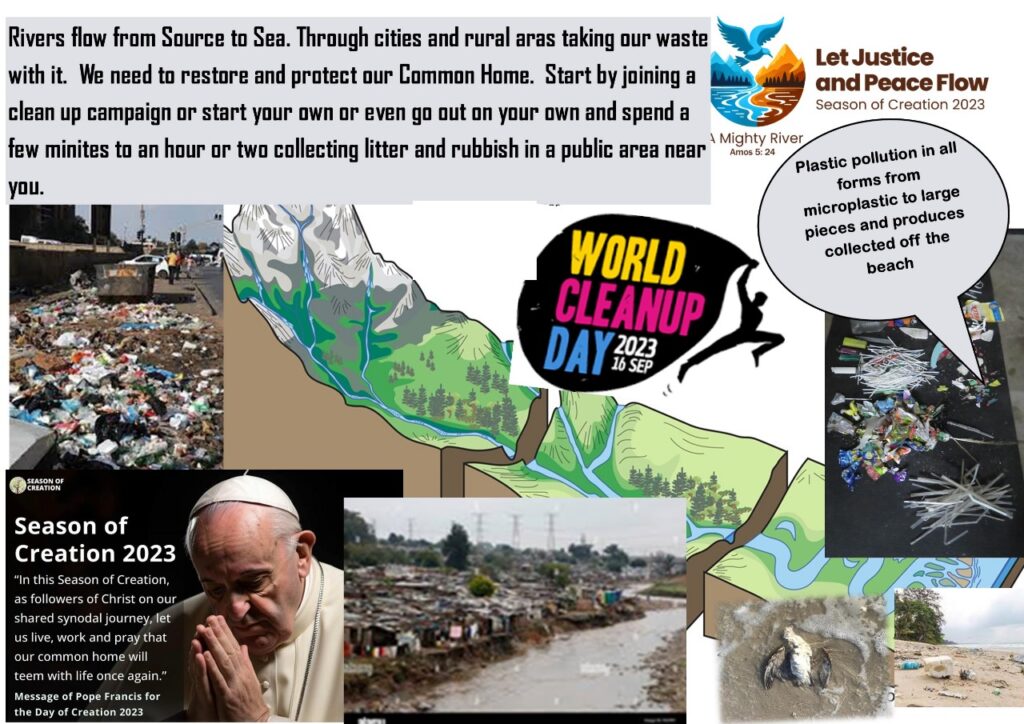
Water shortages are being experienced in the form of droughts or break-down of infrastructure and while access to clean water is a universal human right it is certainly not the reality everywhere. Water polluted with chemicals or sewerage is a health hazard faced by many people, mostly the poor, although every person and all of creation is accepting the reality of the water crises of our day. Buying bottled water is itself very problematical as the vast majority of the millions of bottles of water bought are reportedly not recycled, and when it is available the water in our taps is perfectly drinkable. Too much of our cleaning up is picking up empty water bottles mostly only used once and discarded. All parts of the slogan REDUCE, REUSE, RECYCLE are necessary to keep in mind. Is that what we are teaching our children?
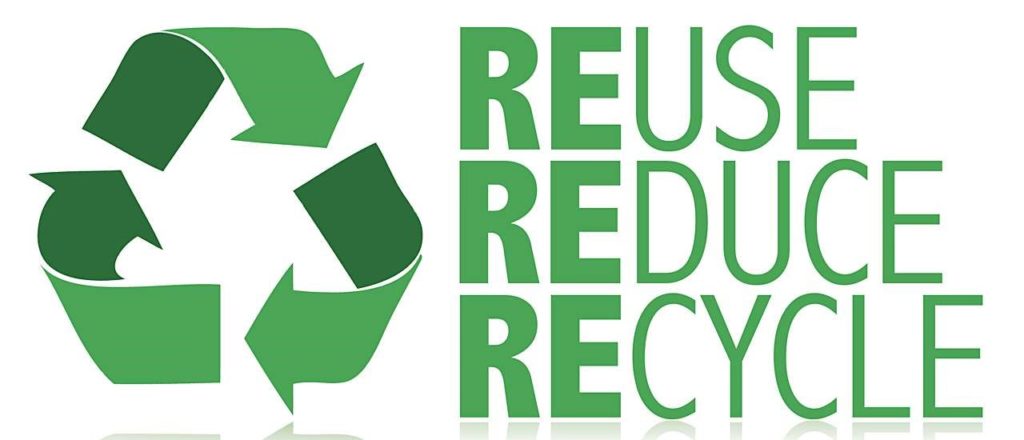
WORLD CLEAN UP DAY has taken up many different areas of concern apart from water, air and plastic. Maybe we, as individuals and in our families, are conscious of those areas and try to do our best. But I was intrigued and quite shocked to read about digital trash and even there being a Digital Clean Up Day. Unnecessary emails, files, apps, duplicates of photos and videos, etc., are all digital waste which creates digital pollution that continues to consume energy, even when we have forgotten about them. Each year the internet worldwide (and its supporting systems) produces 900 million tons of CO2, which is more than the annual output of the whole country of Germany. The growing concern about the Information and Communication Technology (ICT) sector’s energy consumption and CO2 pollution prompted a Global Digital Cleanup campaign in 2020. By 2022 Digital Cleanup Day saw 2.7 million Giggabytes deleted by those participating, thus preventing the production of at least 683 tons of CO2. http://www.digitalcleanupday.org/ by some calculations, Internet use accounted for 3.7% of global emissions, which is equivalent to all the air traffic in the world. And this hazard is growing. It is estimated that the internet network will consume 20 percent of the world’s total energy by 2030.
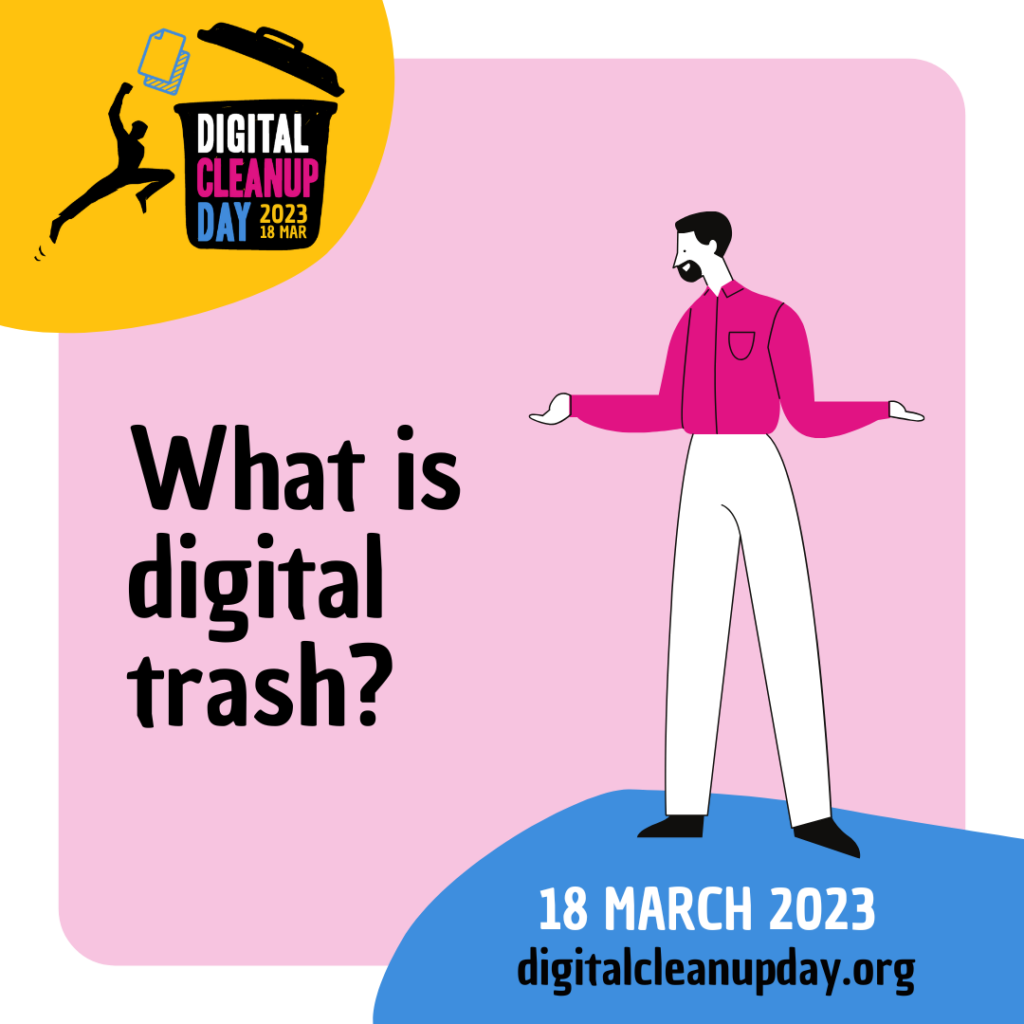
Much of the concern around pollution and the need to clean up our world, our common home, our family of families, is to do with health and welfare and the risks to our future and that of our children. While perfectly valid this view is practical rather than both practical and spiritual. Pope Francis writes, The destruction and wicked behaviour toward creation, is ecological sin. It is a sin against our Creator but also against creation, individual creatures and communities, resulting in harm and suffering at every level. Does, or should this awareness of sinfulness cause us to change our behaviour any more than the knowledge of harm it causes? As believers do we not have a responsibility to God to care for our common home and all its creatures, to try to do so with the love with which God cares?
Families are acutely aware of the need for tidiness and cleanliness and members are taught the value of possessions, not to hoard stuff but also not to throw away what can still be used and useful to someone. World Clean Up Day calls for environmental clean-ups but also for checking on our attitudes, towards care for our own homes and our greater common home, call it Our World a Family of Families.
From SACBC SEASON OF CREATION REFLECTION SUNDAY 10 SEPTEMBER. The destruction and wicked behaviour toward creation, is ecological sin, says Pope Francis. In the face of stubborn evil behaviour, Ezekiel commands us to admonish the wicked in this regard. This is not an easy task, we could easily be faced with having to forgive to forget, and getting tired and blind from seeing the evil that continues to happen.

The good news in this season of Creation is that there is a cure. Jesus teaches us to speak the truth in love for the greater good. The destiny of all creation is bound up with the mystery of Christ (LS 99). We owe no one anything, except to love one another for he who loves his neighbour has fulfilled the law. “The ultimate tragedy is not the oppression and cruelty by the bad people but the silence of the good people.” (Dr Martin Luther King Jr). The season of Creation offers us an opportunity to reflect on the continuous sin and take just actions to care for creation. We are called to be watchers over and carers for our common home.
SEASON OF CREATION. SEPTEMBER 13.
September 13. Dad spoke seriously to them all. “I’m sure you’ve seen all kinds of houses, huts and farms already. We’ve never been rich, but like most people we know, I would consider us middle class. We do have enough to live off, if we don’t waste money or spend extravagantly. The fact that we do share our resources, as Pope Francis asks, with others is important for me. Oh, and by the way no new cellphones for you kids this year.” It was quite hard for the younger ones to understand why Pope Francis so often condemns the rich. Dad explained that in the gospel of today Jesus did the same. “It is not that being rich is so wrong but that in one way it takes away from the poor, especially if the rich do not share their wealth. We should all share more equally.”
Reflect, share, act. Scripture: Woe to you that are rich for you have receive your consolation. Woe to you that are full now, for you shall hunger. From Luke 6:20-26. Pope Francis: We have to realize that a true ecological approach always becomes a social approach; it must integrate questions of justice in debates on the environment, so as to hear both the cry of the earth and the cry of the poor. LS 49. A constant flood of new consumer goods can baffle the heart and prevent us from cherishing each thing and each moment. To be serenely present to each reality, however small it may be, opens us to much greater horizons of understanding and personal fulfilment. Christian spirituality proposes a growth marked by moderation and the capacity to be happy with little. LS 222
Eco-tip and prayer: Host a discussion on the importance of good money management while allowing each person to have their own values on the subject. Pray, Glory be to the Father……………………

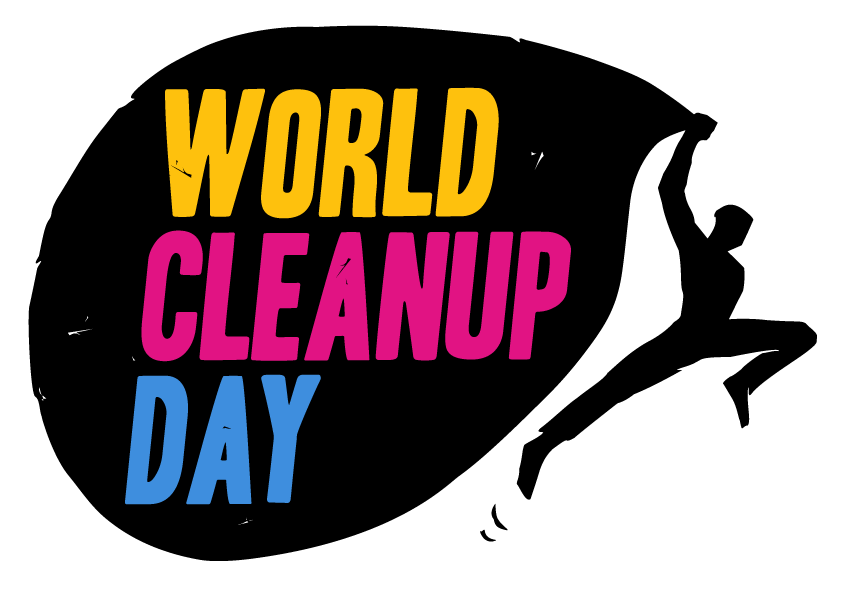

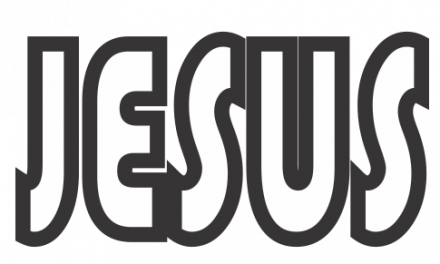
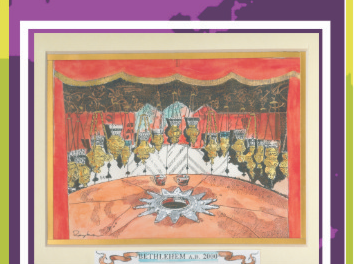
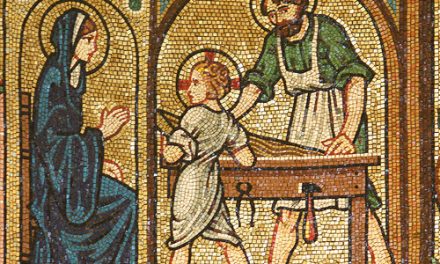
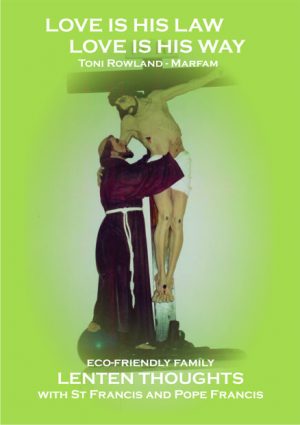
Recent Comments